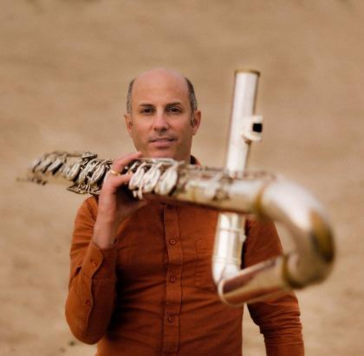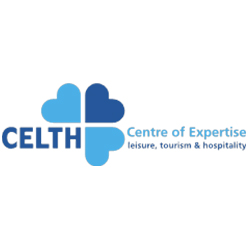Thank you for sharing this story! However, please do so in a way that respects the copyright of this text. If you want to share or reproduce this full text, please ask permission from Innovation Origins (partners@innovationorigins.com) or become a partner of ours! You are of course free to quote this story with source citation. Would you like to share this article in another way? Then use this link to the article: https://innovationorigins.com/en/silicon-sampling-ai-powered-personas-offer-new-insights-for-market-research-but-have-limitations/ n the rapidly evolving field of marketing and communication, staying ahead means embracing technological innovations. The latest breakthrough, silicon sampling, leverages AI to revolutionize market research by creating synthetic personas that mimic human responses. This method, which utilizes large language models (LLMs) like GPT-4o, offers a cost-efficient and less time-consuming alternative to traditional market research. Roberta Vaznyte and Marieke van Vliet (Fontys University of Applied Science) have explored the promise and challenges of silicon sampling, highlighting key findings from recent experiments and the implications for the future of market research.
LINK
This study contributes to the employability skills debate by investigating how students’ self-perceived 21st century skills relate to the self-perceived fit between their higher education curriculum and their future labor market for a sustainable entry to this labor market. Survey data from 4670 fourth-year students over a period of four years were analyzed. Furthermore, out of this group, 83 students were monitored longitudinally over their full educational student careers. Results showed a positive relationship between students’ self-perceived 21st century skills and their self-perceived “education-future labor market fit”. Among more recent cohorts, a significant improvement in their self-perceived 21st century skills was found. Overall, this study indicated that in order to deliver “employable” graduates, students need to be thoroughly trained in 21st century skills, and their development should be retained and expanded. This is one of the few studies that uses a vast amount of both cross-sectional and longitudinal data on skills and labor market perspectives among new graduates.
DOCUMENT

High-tech horticulture production methods (such as vertical farming, hydroponics and other related technology possibilities), combined with evolving market side possibilities (consumer’s willingness to pay for variety, food safety and security), are opening new ways to create and deliver value. In this paper we present four emerging business models and attempt to understand the conditions under which each business model is able to create positive market value and sustained business advantage. The first of these four models is the case of a vertically integrated production to retail operation. The second model is the case of a production model with assured retail/distribution side commitment. The third model deals with a marketing/branding driven production model with differentiated market positioning. Finally, the forth is a production model with direct delivery to the end-consumer based upon the leveraging of wide spread digital technology in the consumer market. To demonstrate these four business models, we analyze practical case studies and analyze their market approach and impact. Using this analysis, we create a framework that enables entrepreneurs and businesses to adopt a business model that matches their capabilities with market opportunities.
DOCUMENT

In this proposal, a consortium of knowledge institutes (wo, hbo) and industry aims to carry out the chemical re/upcycling of polyamides and polyurethanes by means of an ammonolysis, a depolymerisation reaction using ammonia (NH3). The products obtained are then purified from impurities and by-products, and in the case of polyurethanes, the amines obtained are reused for resynthesis of the polymer. In the depolymerisation of polyamides, the purified amides are converted to the corresponding amines by (in situ) hydrogenation or a Hofmann rearrangement, thereby forming new sources of amine. Alternatively, the amides are hydrolysed toward the corresponding carboxylic acids and reused in the repolymerisation towards polyamides. The above cycles are particularly suitable for end-of-life plastic streams from sorting installations that are not suitable for mechanical/chemical recycling. Any loss of material is compensated for by synthesis of amines from (mixtures of) end-of-life plastics and biomass (organic waste streams) and from end-of-life polyesters (ammonolysis). The ammonia required for depolymerisation can be synthesised from green hydrogen (Haber-Bosch process).By closing carbon cycles (high carbon efficiency) and supplementing the amines needed for the chain from biomass and end-of-life plastics, a significant CO2 saving is achieved as well as reduction in material input and waste. The research will focus on a number of specific industrially relevant cases/chains and will result in economically, ecologically (including safety) and socially acceptable routes for recycling polyamides and polyurethanes. Commercialisation of the results obtained are foreseen by the companies involved (a.o. Teijin and Covestro). Furthermore, as our project will result in a wide variety of new and drop-in (di)amines from sustainable sources, it will increase the attractiveness to use these sustainable monomers for currently prepared and new polyamides and polyurethanes. Also other market applications (pharma, fine chemicals, coatings, electronics, etc.) are foreseen for the sustainable amines synthesized within our proposition.
Students in Higher Music Education (HME) are not facilitated to develop both their artistic and academic musical competences. Conservatoires (professional education, or ‘HBO’) traditionally foster the development of musical craftsmanship, while university musicology departments (academic education, or ‘WO’) promote broader perspectives on music’s place in society. All the while, music professionals are increasingly required to combine musical and scholarly knowledge. Indeed, musicianship is more than performance, and musicology more than reflection—a robust musical practice requires people who are versed in both domains. It’s time our education mirrors this blended profession. This proposal entails collaborative projects between a conservatory and a university in two cities where musical performance and musicology equally thrive: Amsterdam (Conservatory and University of Amsterdam) and Utrecht (HKU Utrechts Conservatorium and Utrecht University). Each project will pilot a joint program of study, combining existing modules with newly developed ones. The feasibility of joint degrees will be explored: a combined bachelor’s degree in Amsterdam; and a combined master’s degree in Utrecht. The full innovation process will be translated to a transferable infrastructural model. For 125 students it will fuse praxis-based musical knowledge and skills, practice-led research and academic training. Beyond this, the partners will also use the Comenius funds as a springboard for collaboration between the two cities to enrich their respective BA and MA programs. In the end, the programme will diversify the educational possibilities for students of music in the Netherlands, and thereby increase their professional opportunities in today’s job market.

Developing a framework that integrates Advanced Language Models into the qualitative research process.Qualitative research, vital for understanding complex phenomena, is often limited by labour-intensive data collection, transcription, and analysis processes. This hinders scalability, accessibility, and efficiency in both academic and industry contexts. As a result, insights are often delayed or incomplete, impacting decision-making, policy development, and innovation. The lack of tools to enhance accuracy and reduce human error exacerbates these challenges, particularly for projects requiring large datasets or quick iterations. Addressing these inefficiencies through AI-driven solutions like AIDA can empower researchers, enhance outcomes, and make qualitative research more inclusive, impactful, and efficient.The AIDA project enhances qualitative research by integrating AI technologies to streamline transcription, coding, and analysis processes. This innovation enables researchers to analyse larger datasets with greater efficiency and accuracy, providing faster and more comprehensive insights. By reducing manual effort and human error, AIDA empowers organisations to make informed decisions and implement evidence-based policies more effectively. Its scalability supports diverse societal and industry applications, from healthcare to market research, fostering innovation and addressing complex challenges. Ultimately, AIDA contributes to improving research quality, accessibility, and societal relevance, driving advancements across multiple sectors.
Centre of Expertise, onderdeel van Breda University of Applied Sciences, NHL Stenden Hogeschool, HZ University of Applied Sciences
